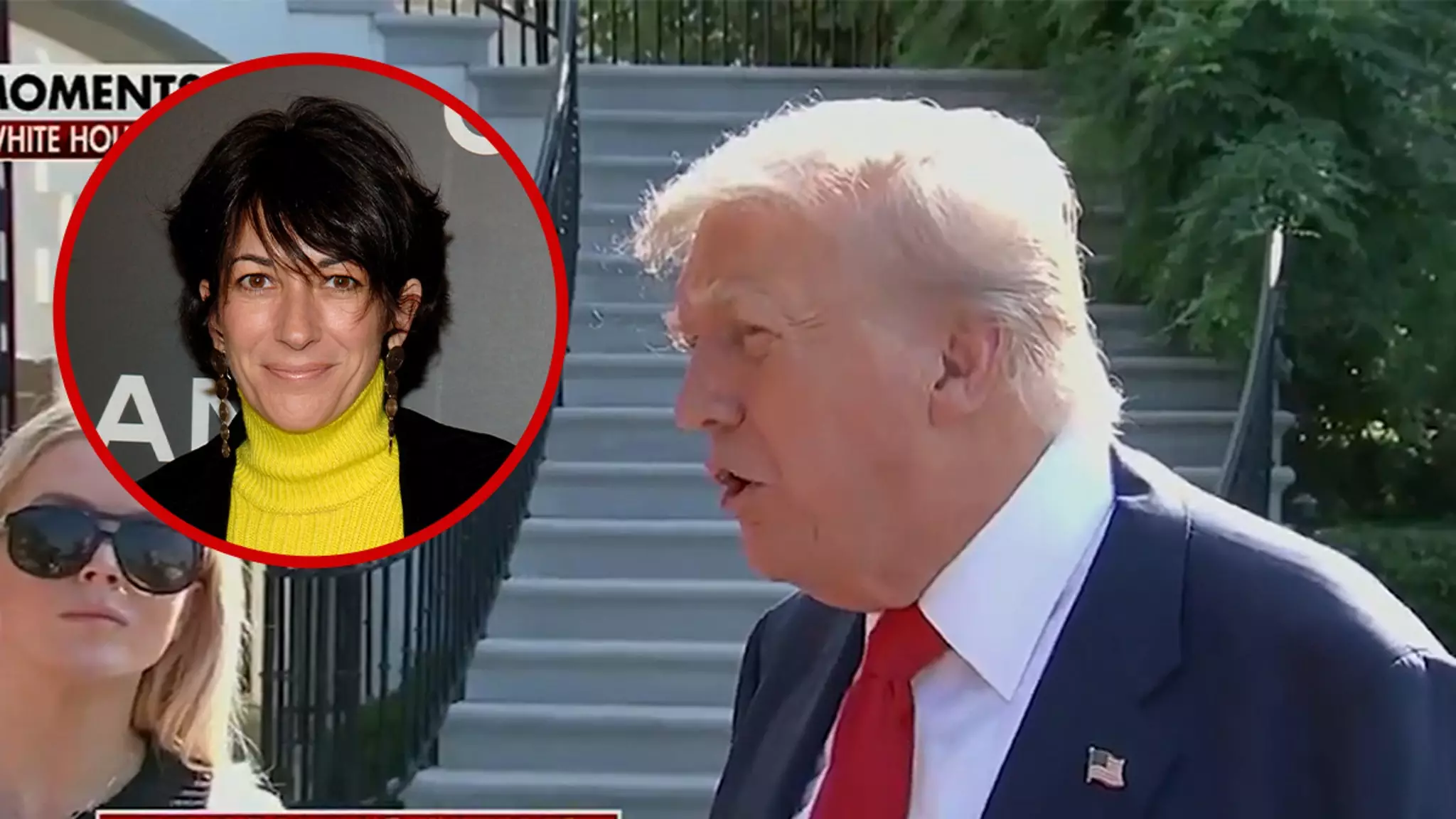In recent weeks, the political landscape surrounding high-profile figures involved in Jeffrey Epstein’s circle has taken a dramatic turn, revealing uncomfortable truths about power, influence, and the murky relationship between justice and political protection. President Donald Trump’s apparent openness to considering a pardon or commutation for Ghislaine Maxwell—an associate of Epstein convicted of child sex trafficking—marks a significant deviation from earlier assurances. This reversal is not merely a procedural pivot; it exposes the fragile boundaries of accountability in a system swayed by political discourse, media narratives, and behind-the-scenes negotiations.
The White House, just a fortnight ago, openly dismissed any possibility of pardoning Maxwell, asserting unequivocally that such discussions were nonexistent. Now, in a surprising interview, Trump’s words suggest otherwise. The vagueness embedded in his response hints at the powerful forces at play—potentially including political calculations, personal connections, or a strategic attempt to keep certain doors open. It is a stark reminder that in the realm of federal justice, promises often serve as mere smokescreens, concealing intentions that remain ambiguous until they are inconveniently revealed.
This flirtation with pardoning Maxwell illustrates how the specter of Epstein’s scandal continues to haunt the corridors of power. The entire episode underscores an alarming tendency: when elite individuals with influence are implicated in heinous crimes, the push to shield them from the full weight of the law can override the foundational principles of justice. The apparent softness or outright wavering in presidential stance raises profound questions about the motives behind such reconsiderations and whether justice is truly served when political pragmatism outweighs moral obligation.
The Unconventional Role of Federal Authorities and Conspiratorial Echoes
Adding fuel to this highly politicized fire are the actions of federal officials involved in the Epstein investigation. Notably, Deputy Attorney General Todd Blanche has conducted multiple interviews with Ghislaine Maxwell behind closed doors—an unusual move in such complex and sensitive cases. Traditionally, such interrogations are reserved for line prosecutors directly handling the case, making Blanche’s involvement appear unusual and potentially indicative of deeper political or personal interests at stake.
Furthermore, the involvement of high-ranking figures such as U.S. Attorney General Pam Bondi intensifies the narrative. Her initial claims about Epstein’s extensive client list created a ripple effect of speculation and conspiracy theories, which she and her department later attempted to quell. The narrative surrounding Epstein’s “missing” client list, combined with official assertions of Epstein’s suicide, demonstrates a landscape where official statements are frequently challenged by public skepticism. These inconsistencies serve to reinforce the idea that powerful actors may have suppressed or manipulated key facts to protect their interests.
The media’s fixation on Epstein’s case, along with the revelations of potentially incriminating communications involving Trump himself, such as a bawdy birthday message, further complicates the narrative. The scenario becomes a tangled web where truths are obscured, and perceptions are molded by leaks, memos, and partisan agendas. The subpoena of Maxwell to testify before Congress, though still in the early stages, promises to expose more uncomfortable truths—if not now, then possibly in the future.
A System in Flux and the Power of Public Perception
The Epstein scandal exposes a broader societal issue: the willingness—or inability—of the justice system to hold powerful individuals accountable under intense political and media scrutiny. Trump’s shift from categorical denial to a more ambiguous stance demonstrates how fragile the veneer of certainty can be when confronted with the realities of high-stakes political machinations. Whether motivated by genuine concern, fear of political fallout, or a desire to protect allies, such shifts undermine public trust.
In truth, the Maxwell case has become more than just a legal matter; it epitomizes the struggle between transparency and concealment, between accountability and complicity. The narrative is no longer confined to courtroom walls but has entered the realm of public morality and national reputation. As each new revelation adds threads to the complex tapestry, one thing becomes clear: the pursuit of truth in cases involving the powerful is relentless, and the question of justice remains as contentious as ever.
This controversy underscores a fundamental tension within American democracy: the delicate balance between systemic fairness and political expediency. As the story evolves, it invites a broader reflection on whether true justice can survive in an environment where influence often trumps integrity. For now, the shadows linger, and the need for vigilance becomes more urgent than ever.

